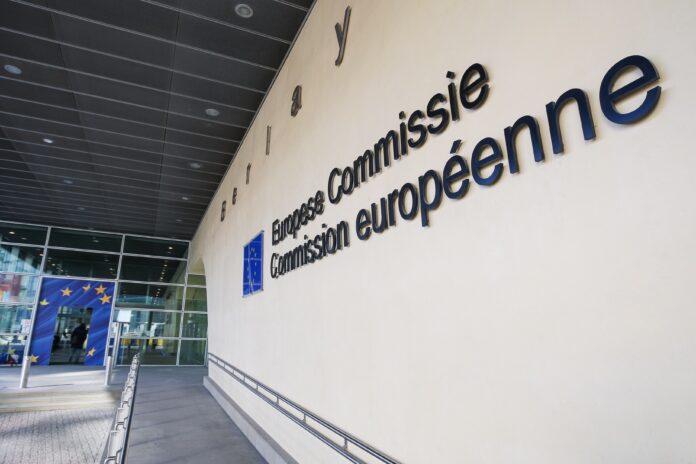Are Europe’s largest operator groups’ ambitions realistic in its response to the continent’s future digital infrastructure?
The European Telecommunications Network Operators Association (ETNO) has responded to he European Commission consultation on the white paper How to Master Europe’s Digital Infrastructure Needs? Its publication in February solicited responses from Member States, civil society, industry and academics to the proposals it outlines.
ETNO’s line of attack is to quote evidence from the European Union’s own Digital Decade Report, that 76% of European citizens see advanced connectivity as essential in improving their lives and socio-economic prospects. Almost 30% wanted everyone, everywhere to have access to high-speed internet access for
ETNO says, “We underline once more that connectivity is crucial to ensure the economic competitiveness and security of the Continent, which require well designed regulation that promotes investment and innovation.
It goes on to point out that the EU’s share in the global ICT market has dropped 10% since 2013 [again citing the European Commission, 2023] and that Europeans have fallen behind global peers in innovation and investment in the connectivity ecosystem.
It claims the next 12 months are vital to set the stage for improving Europe’s connectivity, as “our digital infrastructures are meant to benefit European citizens and businesses. Europe cannot wait to bridge its investment and innovation gap. Modernisation and simplification of current rules, delivered in a timely fashion, can be a gamechanger for the whole of our economy and society.”
Here are ETNO’s main suggestions:
Uniting for a real EU digital market by overcoming Europe’s digital and telecom fragmentation to create a pan-European market with more harmonised rules so telcos can offer services “seamlessly” and “innovate and develop synergies across borders. We must achieve adequate levels of scale, including within national markets: the EU Merger Regulation should be reviewed.”
The European Competitive Telecommunications Association (ecta) took particular exception to this proposal when it was first trotted out by the Commission’s Executive Vice President, Margrethe Vestager, at the launch of the white paper. ecta’s response to the white paper claims it favours the large telco groups, which are almost all former state-owned monopolies, that have opcos in many countries.
Investing in world-class, secure and resilient networks, for all by fundamentally reviewing the EU’s regulatory framework “to promote massive and fast-paced investment in the roll-out of gigabit networks,” relying on general competition law and symmetric rules by default, with ex-ante obligations becoming the exception based on a safety net.
Spectrum policy should boost 5G and lay the ground for 6G. Further harmonisation is required and should be supported by a new EC notification process: license conditions, fees, award and renewal processes should be set in a pro-investment manner throughout EU, with a long-term view.
ecta reacted more positively to greater harmonisation regarding spectrum to unleash the power of 5G, but also to create a balanced, competitive structure in the mobile market, for instance, by addressing late entrants’ lack of spectrum including in the low band for indoor rural areas’ coverag
Promoting innovation with modernised rules and ensuring fair rules. ETNO argues that technology has reshaped connectivity markets, hence sectoral regulation should be streamlined, “removing unnecessary rules and harmonising more at the EU level (e.g., consumer, security, taxation)”.
It wants a level-playing field which is shorthand for Big Tech should have to play by the same rules as the comparatively heavily regulated telcos. For example, it would be fairer to tackle “current asymmetries in the connectivity value chain” and that those who generate huge amounts of traffic – a handful of Big Techcos – should have to pay for its carriage across telcos’ networks.
While this fair share argument appeared to gain some traction in 2023, with just about every CEO of European telco arguing the case at MWC 2023, and with the apparent support of Thierry Breton, the EC’s XXXX, that support melted away at the end of the year and seems unlikely to be resurrected transport services provided by network operators.
Crafting a strong industrial policy for secure and sustainable connectivity means asking the EU to match its ambitious industrial policy with adequate funding and planning. “The effectiveness and coordination of different funding programs should be improved and targeted funds for distributed and AI-ready cloud infrastructure should be increased, Open RAN and subsea cables,” the ETNO’s response states.
Further, “Industry cooperation should be promoted and new initiatives supported: a new flagship project for distributed cloud infrastructure, operator hosted EU Open RAN labs for testing and validation, a joint EU collaboration system for submarine cables governance, a plan to develop an EU quantum cryptography ecosystem, and a policy plan for the green transition in the telecoms sector.”
Not much to ask, then, for a region that is: beset by war (Russia’s invasion of Ukraine as well as the ongoing conflict in Israel, Gaza and Rafah which looks like it could draw in other nations); political instability in its major economies (and especially France right now after President Macron called a snap General Election), intra-regional commercial and political tensions and the highest inflation for decades. Indeed the European Union itself looks more in danger of fragmentation than at any point in its history.



